|
|
|
|
|
|
|
|
|
No Arctic-science events are scheduled for today.
|
Media
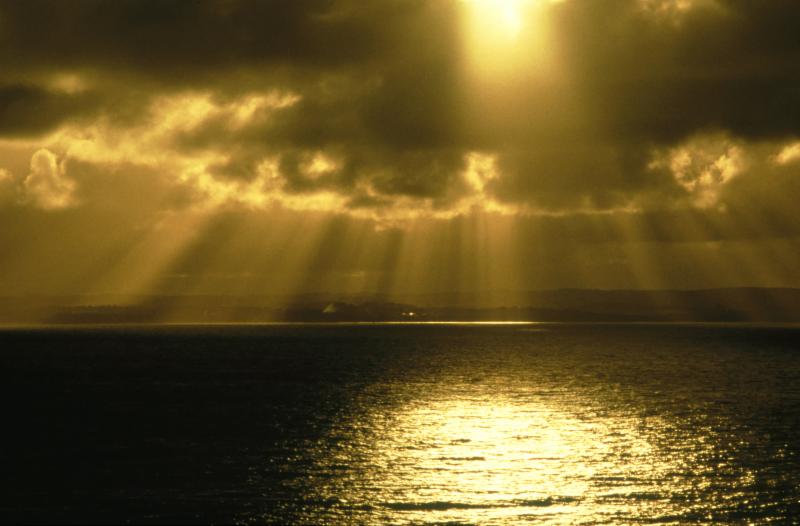 Deep Oceans May Acidify Faster Than Anticipated Due to Global Warming. Deep Oceans May Acidify Faster Than Anticipated Due to Global Warming. Oceans worldwide are undergoing acidification due to the penetration of anthropogenic CO2 from the atmosphere. The rate of acidification generally diminishes with increasing depth. Yet, slowing down of the thermohaline circulation due to global warming could reduce the pH in the deep oceans, as more organic material would decompose with a longer residence time. To elucidate this process, a time-series study at a climatically sensitive region with sufficient duration and resolution is needed. Here we show that deep waters in the Sea of Japan are undergoing reduced ventilation, reducing the pH of seawater. As a result, the acidification rate near the bottom of the Sea of Japan is 27% higher than the rate at the surface, which is the same as that predicted assuming an air-sea CO2 equilibrium. This reduced ventilation may be due to global warming and, as an oceanic microcosm with its own deep- and bottom-water formations, the Sea of Japan provides an insight into how future warming might alter the deep-ocean acidification. Nature
Corporations Make Big Climate Promises Only to Retreat After a Few Years, Study Finds. Billionaires, bankers and corporate executives have trumpeted a new era of sustainable capitalism for years, promising that advances in renewable energy and a rising generation of socially conscious tycoons would radically change an economic system addicted to fossil fuels. But a study published this month in the peer-reviewed Academy of Management Journal found that several big companies that had announced ambitious sustainability goals retreated when profits decreased or top executives changed. Huffington Post
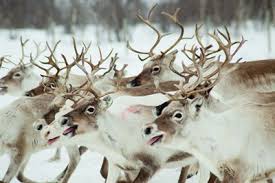 More Than 100 Reindeer Killed by Freight Trains in Norway 'Bloodbath.' More Than 100 Reindeer Killed by Freight Trains in Norway 'Bloodbath.' More than 100 reindeer have been killed by freight trains in northern Norway in the past days in what has been called a senseless tragedy. One train killed 65 deer on a track on Saturday while 41 died between Wednesday and Friday, the public broadcaster NRK reported late on Sunday. "I'm so angry that I'm dizzy," the owner of the 65 dead reindeer, Ole Henrik Kappfjell, told NRK. "It's a senseless animal tragedy ... a psychological nightmare." The Guardian
Katarina Gårdfeldt Appointed as New Director-General. The Swedish government has appointed Katarina Gårdfeldt as new Director-General of the Swedish Polar Research Secretariat. Katarina is Associate Professor of environmental inorganic chemistry and is currently the Director of the Centre for Environment and Sustainability, GMV - a network organization at Chalmers University of Technology and University of Gothenburg that promotes research and education for sustainable development. She has previously been a researcher on several research expeditions in both the Arctic and Antarctica, for example, she was Co-Lead Scientist during the Arctic Ocean 2016 expedition. Swedish Polar Research Secretariat
UAF Study Shows an Increase in Arctic Temperatures During Perceived Pause. "Our new global data includes a much improved representation of our Arctic surface air temperature," Zhang said. UAF's Zhang says he and colleagues in China used readings from remote sensing buoys deployed in in the Arctic Ocean, and worldwide NOAA sea surface temperature data and calculated a continued increase in warming. Alaska Public Radio
St. Petersburg's European University Wins Presidential Grant for Arctic Research. The European University at St. Petersburg won a presidential grant of 3.9 million rubles ($67 thousand) for the project "Interactive Educational Platform of the Russian Arctic: People and Infrastructure," the University's representative Alla Samoletova told TASS on Tuesday. "The European University's project "Interactive Educational Platform of the Russian Arctic: People and Infrastructure" has won a presidential grant of 3,092,806 rubles," she said. "The project's initiators were three research institutes of our university - the Center for Science and Technology Research, the Center for the North's Social Research and the Research Center for Energy Policies." TASS
|
|
Future Events
Maritime Futures and the Bering Strait Region, November 29, 2017 (Washington, DC USA). The shared US-Russian maritime border and the narrow Bering Strait will very likely see an increase in economic activity as nations and the private sector explore natural resource development, develop shipping routes and vessel traffic lanes, and pursue fishing stocks in the Arctic. A new CSIS report, Maritime Futures: The Arctic and The Bering Strait Region, describes the impact of the increased connection of distant economies through Arctic maritime routes and the urgent need to enhance protection of US Arctic coastline and territorial waters. The Center for Strategic & International Studies will host Rear Admiral Michael F. McAllister, Commander of the U.S. Coast Guard's Seventeenth District, to discuss current Coast Guard efforts and initiatives in the Bering Strait region to better manage this maritime future, with a focus on enhancing maritime domain awareness and search and rescue capabilities and cooperation, as well as vessel traffic management with Russia.
Alaska- Climate Change in Adventure Land, November 29, 2017 (Washington, DC USA). The Embassy of the Federal Republic of Germany and the German Historical Institute will host the U.S. premiere of "Alaska- Climate Change in Adventure Land." The premiere will be followed by a panel conversation on the state of climate science and diplomacy after the UN Climate Conference COP23 in Bonn, Germany with Dr. Jan Philipp Burgard, Prof. Dr. Juergen Kropp, Dr. Eran Hood, and Dr. Joseph Majkut. To attend, please RSVP by November 27, 2017, to wi-s1@wash.diplo.de
Arctic Research Seminar with Courtney Carothers and Laura Zanotti: In a Climate of Change: Co-producing Knowledge and Community Researcher Relationships in the Leadership and Strength Project in Utqiagvik, Alaska, November 30, 2017 (Washington, DC USA). Courtney Carothers is an associate professor of fisheries in the College of Fisheries and Ocean Sciences at the University of Alaska Fairbanks. She is an environmental anthropologist currently researching how fishery systems are being remade by enclosure and privatization processes and the total environment of change facing Arctic Indigenous communities. Her work explores human-environment relationships, cultural values, equity, and well-being. She has co-edited two books and published over 30 articles and book chapters on these topics. She currently serves on a number of boards and working groups, including: the SEARCH (Study of Environmental Arctic Change) Science Steering Committee, the North Pacific Research Board Science Panel, the Alaska Sustainable Salmon Fund Expert Panel, the State of Alaska's Salmon and People. This event is part of the ARCUS DC Arctic Research Seminar Series.
Fleeing Change: Relocation the Village of Newtowk, Alaska, December 6, 2017 (Washington, DC USA). The Wilson Center will sponsor this event. The Village of Newtok, a Yupik Eskimo community of 450, faces certain destruction from slow-moving climate disaster. Coastal and river erosion of the Ninglick River embankment and degradation of the region's underlying permafrost has already destroyed critical infrastructure in the village, including the only barge landing, a solid waste site, and soon freshwater source. Newtok may no longer be a viable community by 2020 and has been working to relocate to Mertavik, a site nine miles up the Ninglick River. This discussion will be with Newtok's leadership on their experiences and struggles to preserve their Yupik way of life on their historic subsistence lands.
Fall 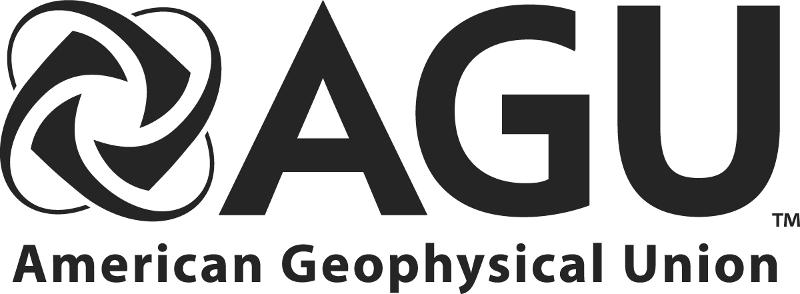 Meeting is the largest and preeminent Earth and space science meeting in the world. The 2017 Fall Meeting will take place in New Orleans, Louisiana, offering attendees the chance to discover a new location that features world renowned cuisine, music, arts and culture, and provides access to vital scientific ecosystems. Fall Meeting will offer a unique mix of more than 20,000 oral and poster presentations, a broad range of keynote lectures, various types of formal and informal networking and career advancement opportunities, scientific field trips around New Orleans, and an exhibit hall packed with hundreds of exhibitors.
ArcticNet invites the global Arctic research community to Arctic Change 2017! This conference will bring together Arctic researchers and students with Inuit, Northerners and government, industry and NGO stakeholders. The world's foremost Arctic scientists will present research findings and discuss impacts of climate change and modernization. With 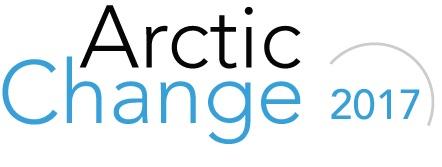 over 1500 participants expected, Arctic Change 2017 will be one of the largest trans-sectoral international Arctic research conferences held in Canada. We welcome students and early career researchers to participate in "Student Day" at the start of the Conference. See an excerpt from last year: ArcticNet ASM2016. over 1500 participants expected, Arctic Change 2017 will be one of the largest trans-sectoral international Arctic research conferences held in Canada. We welcome students and early career researchers to participate in "Student Day" at the start of the Conference. See an excerpt from last year: ArcticNet ASM2016.
The Arctic Domain: From Economics to National Security, December 12, 2017 (St. Mary's Island, MD USA). This unique forum addresses issues central to U.S. defense and foreign affairs. In this day-long forum, panelists representing policymakers, academics, and government officials, will discuss topics such as U.S. Arctic defense strategy, international frameworks for cooperation, climate change, responsible resource extraction, energy development, tourism, territorial claims and defense issues. This event is hosted by the Patuxent Defense Forum.
Actionable Science: Arctic Research Addressing Stakeholder Needs // AGU Town Hall Hosted by IARPC and SEARCH, December 14, 2017 (New Orleans, LA USA). The Interagency Arctic Research Committee (IARPC) and the Study of Environmental Arctic Change (SEARCH) recognize the importance of science that is actionable by stakeholders. This town hall will share their evolving approaches and engage the community in discussions of best practices and new approaches. Examples of Arctic research addressing stakeholder needs will serve as test cases to examine: how are needs identified; how are questions appropriately framed to meet stakeholder needs; and what promotes and constrains research addressing those needs? The executive directors of SEARCH and IARPC will moderate discussion among SEARCH and IARPC teams and the broader community.
ISAR-5 Fifth International Symposium on Arctic Research, January 15-18, 2018 (Tokyo, Japan). The fifth ISAR has been planned at the recommendation of the science steering committee of ISAR-4, which was held in Toyama, Japan in April 2015. The fifth ISAR will be devoted to discussions on environmental changes in the Arctic and their regional and global implications, to seek additional international scientific collaboration in this area by gathering, synthesizing and sharing information related to these changes occurring in the Arctic. Special emphasis will be placed on the fields of the social sciences and humanities, which were not included in the previous ISARs. ISAR-5 will consist of general sessions and special sessions. The general sessions will address the following topics: atmosphere; ocean and sea ice; rivers, lakes, permafrost, and snow cover; ice sheets, glaciers, and ice cores; terrestrial ecosystems; marine ecosystems; geospace; policies and economy; and social and cultural dimensions. Special sessions will be solicited on cross-cutting themes.
NSF Principles for the Conduct of Research in the Arctic, Comments due January 16, 2018. The Interagency Arctic Research Policy Committee (IARPC), is seeking comments on how best to revise and strengthen the Principles for the Conduct of Research in the Arctic. A Federal Register Notice has been published to solicit community input. Since 1990, community engagement and Arctic research have advanced both in theory and in practice, necessitating a review and update of the current Principles. The Principles Revision Working Group of IARPC is seeking input from all stakeholders to revise and update the Principles. The update will focus on communicating clearly the Principles for community engagement by Arctic researchers and including language that describes partnerships and collaborations with Indigenous scholars, enhanced community-based observations, fostering community-based participatory research, and the integral contributions of Indigenous knowledge in the co-production and dissemination of knowledge. Input is also sought on enhancing the dissemination and implementation of the Principles. Comments can be emailed to iarpcprinciples@nsf.gov.
2018 Arctic Frontiers: Connecting the Arctic, January 21-26, 2018 (Tromso, Norway). Arctic Frontiers is an international arena on sustainable development in the Arctic. The conference addresses the management of opportunities and challenges to achieve viable economic growth with societal and environmental sustainability. Arctic Frontiers brings academia, government and business together to create a firmer foundation for decision-making and sustainable economic development in the Arctic. Join the Arctic Frontiers conference preparing the new Arctic future. The conference takes place the fourth week of January in the Norwegian city of Tromsø, known as the Gateway to the Arctic.
Alaska Marine Science Symposium, January 22-26, 2018 (Anchorage, Alaska.)
The Alaska Marine Science Symposium (AMSS) is Alaska's premier marine research conference. For over 20 years, it has brought together scientists, educators, resource managers, students, and the public to discuss marine research conducted in Alaskan waters. Over 700 people attend this 4-day long conference held annually in January. Each day of the conference highlights Alaskan marine ecosystems: Arctic (Tuesday), Bering Sea & Aleutian Islands (Wednesday), and the Gulf of Alaska (Thursday). Research topics discussed range from ocean physics, fishes and invertebrates, seabirds, marine mammals, to local traditional knowledge. Website for 2018 meeting is here.
Alaska Forum on the Environment, February 12-16, 2018 (Anchorage, Alaska)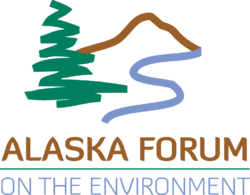 . AFE is a statewide gathering of environmental professionals from government agencies, non-profit and for-profit businesses, community leaders, Alaskan youth, conservationists, biologists and community elders. The diversity of attendees sets this conference apart from any other. The 2018 event will be our 20th year providing a strong educational foundation for all Alaskans and a unique opportunity to interact with others on environmental issues and challenges. . AFE is a statewide gathering of environmental professionals from government agencies, non-profit and for-profit businesses, community leaders, Alaskan youth, conservationists, biologists and community elders. The diversity of attendees sets this conference apart from any other. The 2018 event will be our 20th year providing a strong educational foundation for all Alaskans and a unique opportunity to interact with others on environmental issues and challenges.
2018 North by North Festival, April 23-29, 2018 (Anchorage, Alaska USA). The North by North Festival captures the spirit of Alaska and the Arctic - to address our challenges and opportunities with Northern innovation and resilience, to build on a rich history and to ensure a future full of promise. The Festival is for the North, and organized by Northerners, with goals of sustainability, livability and growth. The Festival brings innovators from across Alaska, the nation and other Arctic regions to collaborate and address local and circumpolar challenges. Through knowledge, governance, business, design, film, music, food, literature and art, we celebrate the North.
The Effects of Climate Change on the World's Oceans, June 4-8, 2018 (Washington, DC USA). The 4th International Symposium will bring together experts from around the world to better understand climate impacts on ocean ecosystems - and how to respond. The event is hosted by a variety of groups including International Council for the Exploration of the Sea (ICES), N. Pacific Marine Science Organization (PICES), Intergovernmental Oceanographic Commission of UNESCO (IOC), and Food and Agriculture Organization of the United Nations (FAO).
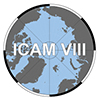
International Conference on Arctic Margins (ICAM) VIII, June 11-14, 2
The international Conference on Arctic Margins (ICAM) is a forum for earth scientists who study the Arctic. It was founded to help understand the little known Arctic geology and to foster cooperation and collaboration among Arctic researchers. There have been 7 meetings since its inception in 1991. See here for more information.
 POLAR 2018, June 15-27, 2018 (Davos, Switzerland). POLAR2018 is a joint event from the Scientific Committee on Antarctic Research (SCAR) and the International Arctic Science Committee (IASC). The SCAR meetings, the ASSW and the Open Science Conference will be hosted by the Swiss Federal Institute for Forest, Snow and Landscape Research WSL under the patronage of the Swiss Committee on Polar and High Altitude Research. The WSL Institute for Snow and Avalanche Research SLF is organizing POLAR2018. POLAR 2018, June 15-27, 2018 (Davos, Switzerland). POLAR2018 is a joint event from the Scientific Committee on Antarctic Research (SCAR) and the International Arctic Science Committee (IASC). The SCAR meetings, the ASSW and the Open Science Conference will be hosted by the Swiss Federal Institute for Forest, Snow and Landscape Research WSL under the patronage of the Swiss Committee on Polar and High Altitude Research. The WSL Institute for Snow and Avalanche Research SLF is organizing POLAR2018.
17th International Congress of Circumpolar Health (ICCH17), August 12-15, 2018 (Copenhagen, Denmark). The ICCH congresses are held every third year in different locations in the circumpolar area and represent the largest scientific meetings worldwide on circumpolar health. The ICCH congresses serve as the primary source of information exchange and scholarly communication in issues relating to circumpolar health. More than 750 participants generally register and participate in each Congress, and more than 400 scientific papers or posters are usually presented.
The second Arctic Biodiversity Congress is hosted by the Conservation of Arctic Flora and Fauna (CAFF), the biodiversity working group of the Arctic Council, and the Ministry of the Environment, Finland. The second Arctic Biodiversity Congress will build on the success of the first Congress, held in 2014 in Trondheim, Norway, and will bring together scientists, policymakers government officials, Indigenous representatives, Traditional Knowledge holders, industry, non-governmental organizations, and others to promote the conservation and sustainable use of Arctic biodiversity.
|
|

  
4350 N. Fairfax Drive, Suite 510
Arlington, VA 22203, USA
External links in this publication, and on the USARC's World Wide Web site ( www.arctic.gov) do not constitute endorsement by the US Arctic Research Commission of external Web sites or the information, products or services contained therein. For other than authorized activities, the USARC does not exercise any editorial control over the information you may find at these locations. These links are provided consistent with the stated purpose of this newsletter and the USARC Web site.
|
|
|
|
|
|
|
|
|
 Deep Oceans May Acidify Faster Than Anticipated Due to Global Warming. Oceans worldwide are undergoing acidification due to the penetration of anthropogenic CO2 from the atmosphere. The rate of acidification generally diminishes with increasing depth. Yet, slowing down of the thermohaline circulation due to global warming could reduce the pH in the deep oceans, as more organic material would decompose with a longer residence time. To elucidate this process, a time-series study at a climatically sensitive region with sufficient duration and resolution is needed. Here we show that deep waters in the Sea of Japan are undergoing reduced ventilation, reducing the pH of seawater. As a result, the acidification rate near the bottom of the Sea of Japan is 27% higher than the rate at the surface, which is the same as that predicted assuming an air-sea CO2 equilibrium. This reduced ventilation may be due to global warming and, as an oceanic microcosm with its own deep- and bottom-water formations, the Sea of Japan provides an insight into how future warming might alter the deep-ocean acidification. Nature
Deep Oceans May Acidify Faster Than Anticipated Due to Global Warming. Oceans worldwide are undergoing acidification due to the penetration of anthropogenic CO2 from the atmosphere. The rate of acidification generally diminishes with increasing depth. Yet, slowing down of the thermohaline circulation due to global warming could reduce the pH in the deep oceans, as more organic material would decompose with a longer residence time. To elucidate this process, a time-series study at a climatically sensitive region with sufficient duration and resolution is needed. Here we show that deep waters in the Sea of Japan are undergoing reduced ventilation, reducing the pH of seawater. As a result, the acidification rate near the bottom of the Sea of Japan is 27% higher than the rate at the surface, which is the same as that predicted assuming an air-sea CO2 equilibrium. This reduced ventilation may be due to global warming and, as an oceanic microcosm with its own deep- and bottom-water formations, the Sea of Japan provides an insight into how future warming might alter the deep-ocean acidification. Nature More Than 100 Reindeer Killed by Freight Trains in Norway 'Bloodbath.' More than 100 reindeer have been killed by freight trains in northern Norway in the past days in what has been called a senseless tragedy. One train killed 65 deer on a track on Saturday while 41 died between Wednesday and Friday, the public broadcaster NRK reported late on Sunday. "I'm so angry that I'm dizzy," the owner of the 65 dead reindeer, Ole Henrik Kappfjell, told NRK. "It's a senseless animal tragedy ... a psychological nightmare." The Guardian
More Than 100 Reindeer Killed by Freight Trains in Norway 'Bloodbath.' More than 100 reindeer have been killed by freight trains in northern Norway in the past days in what has been called a senseless tragedy. One train killed 65 deer on a track on Saturday while 41 died between Wednesday and Friday, the public broadcaster NRK reported late on Sunday. "I'm so angry that I'm dizzy," the owner of the 65 dead reindeer, Ole Henrik Kappfjell, told NRK. "It's a senseless animal tragedy ... a psychological nightmare." The Guardian
 Meeting is the largest and preeminent Earth and space science meeting in the world. The 2017 Fall Meeting will take place in New Orleans, Louisiana, offering attendees the chance to discover a new location that features world renowned cuisine, music, arts and culture, and provides access to vital scientific ecosystems. Fall Meeting will offer a unique mix of more than 20,000 oral and poster presentations, a broad range of keynote lectures, various types of formal and informal networking and career advancement opportunities, scientific field trips around New Orleans, and an exhibit hall packed with hundreds of exhibitors.
Meeting is the largest and preeminent Earth and space science meeting in the world. The 2017 Fall Meeting will take place in New Orleans, Louisiana, offering attendees the chance to discover a new location that features world renowned cuisine, music, arts and culture, and provides access to vital scientific ecosystems. Fall Meeting will offer a unique mix of more than 20,000 oral and poster presentations, a broad range of keynote lectures, various types of formal and informal networking and career advancement opportunities, scientific field trips around New Orleans, and an exhibit hall packed with hundreds of exhibitors. over 1500 participants expected, Arctic Change 2017 will be one of the largest trans-sectoral international Arctic research conferences held in Canada. We welcome students and early career researchers to participate in "Student Day" at the start of the Conference. See an excerpt from last year:
over 1500 participants expected, Arctic Change 2017 will be one of the largest trans-sectoral international Arctic research conferences held in Canada. We welcome students and early career researchers to participate in "Student Day" at the start of the Conference. See an excerpt from last year: 




